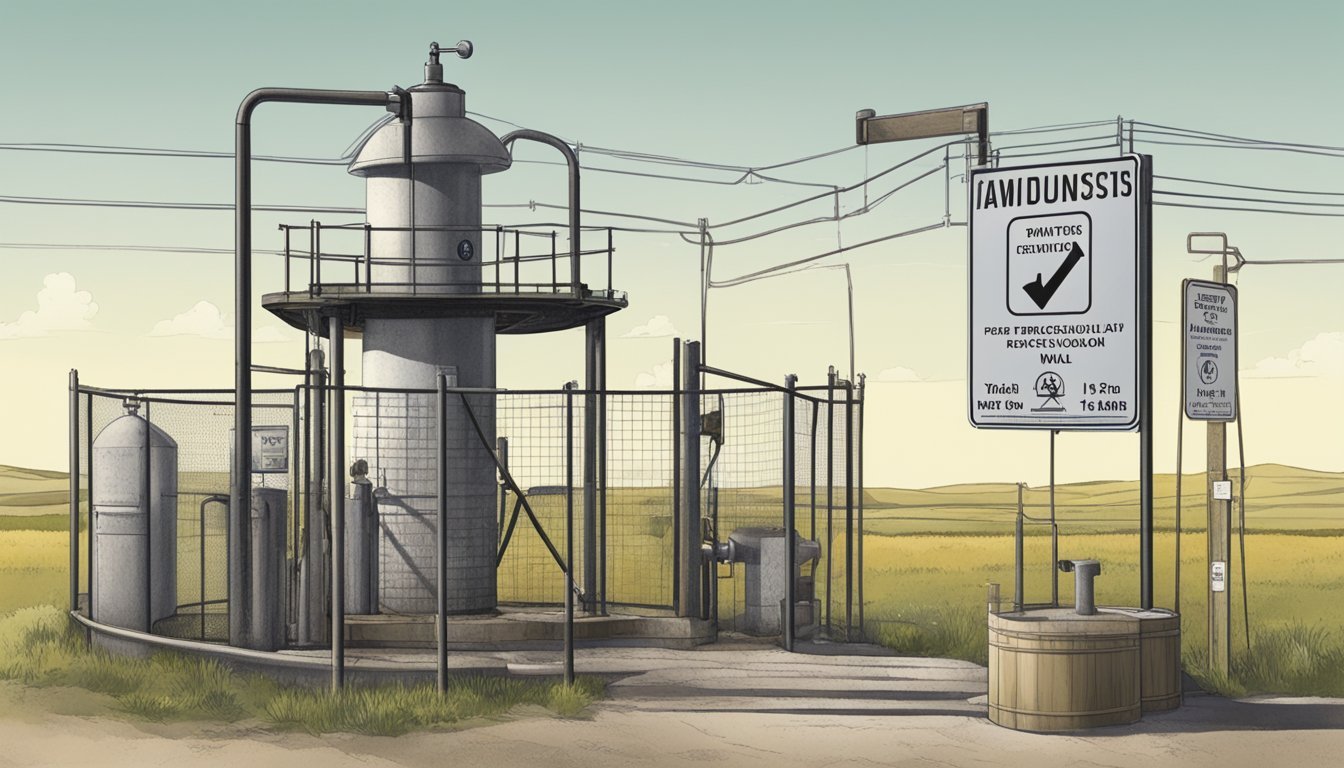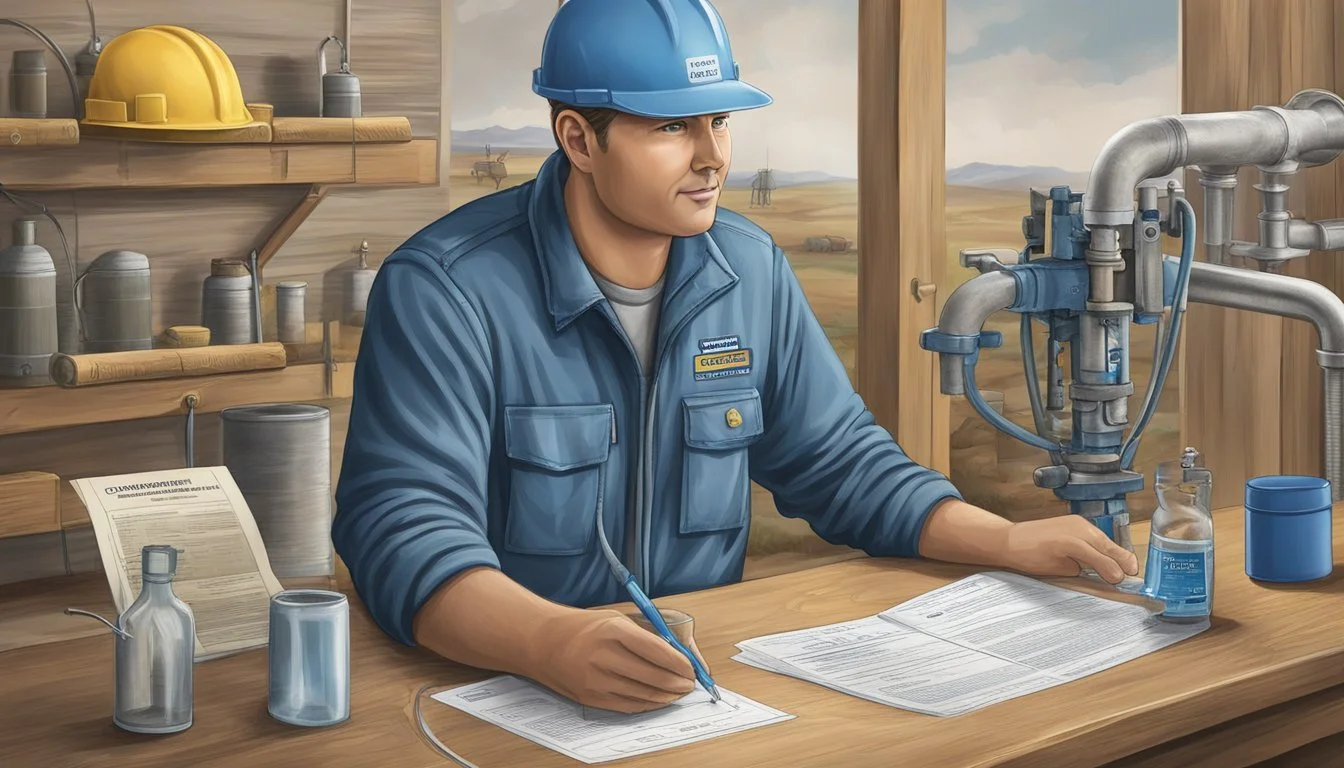North Dakota Water Well Regulations
Understanding Compliance and Standards
Water well regulations in North Dakota are established to ensure the sustainable management and safety of the state's groundwater resources. While private well placement and water quality are not regulated by the state, the construction and operation of water wells, particularly those used for public water supply systems, irrigation, industrial, commercial, and similar uses, are subject to specific legal and technical standards. The North Dakota Department of Environmental Quality plays a pivotal role in setting these regulations, which are designed to protect both the environment and public health.
Contractors involved in the drilling and construction of water wells within the state are required to adhere to these regulations. The state mandates that such contractors must be licensed, a process that includes a demonstration of technical knowledge and experience. In addition to state regulations, water well construction and monitoring practices must also conform to standards set forth by federal entities, such as the Environmental Protection Agency (EPA), particularly when the wells have the potential to affect inter-state watersheds or water systems.
The legal framework governing these activities includes the North Dakota Century Code and the North Dakota Administrative Code, with specific chapters dedicated to water well contractors and groundwater monitoring well construction requirements. These comprehensive rules serve as a guide for contractors and property owners, ensuring that the extraction of groundwater is done responsibly and sustainably.
Water Well Regulatory Framework
The State of North Dakota maintains a comprehensive regulatory framework for the management of water well construction, maintenance, and contractor certification. This ensures the protection of groundwater resources and the safety of the state's water supplies.
North Dakota Administrative Code
The North Dakota Administrative Code (NDAC) comprises specific regulations that govern water well contractors and the construction of water wells. The Department of Water Resources, under the guidance of the Office of the State Engineer, enforces these rules. The NDAC outlines criteria for constructing wells, installing pumps and pitless units, and the necessary qualifications for certified contractors. For instance, all water well or monitoring well drilling must follow the NDAC provisions, which highlight contractor responsibilities and the technical requirements for well installation.
North Dakota Century Code
Under the North Dakota Century Code (NDCC), water laws are established to provide statutory authority to entities such as the State Board of Water Well Contractors. This legislative code includes chapters relevant to the NDAC, thereby strengthening the regulatory framework. The NDCC dictates overarching water laws and regulations, addressing the broader legal scope within which the water well industry operates. It determines the legal capacities and limitations of contractors, the Office of the State Engineer, and various other regulatory bodies in the enforcement of water laws in North Dakota.
Water Well Licensing and Certification
In North Dakota, the construction, drilling, and installation activities associated with water wells are regulated to maintain public health and safety standards. These activities require specific licensing and certifications enforced by state authorities.
Water Well Contractor Licensing
The State Board of Water Well Contractors is the governing authority that oversees the licensing of water well contractors in North Dakota. It's mandatory for all contractors who drill or construct water wells to obtain a license. A significant stipulation for licensing includes the requirement of a surety bond of $15,000 and an annual certification fee. All contractors must adhere to the regulations established by the aforementioned Board before undertaking any water well projects.
Certification Requirements
To be a certified drilling contractor, an individual must pass an exam with a fee of $100 and then provide the necessary surety bond within six months of the exam date. The certification requirements are stringent and articulate that only certified contractors can perform installations or construct monitoring wells, ensuring competency and adherence to safety standards. Additionally, the State Engineer must issue a conditional water permit for the beneficial use of water from any constructed well, given it's essential for the protection and responsible management of the state's water resources.
Water Appropriation and Usage
North Dakota regulates both ground and surface water usage through specific entities and legislation to ensure the management aligns with state goals and legal frameworks. This ensures that agriculture, recreation, and other sectors can sustainably use water resources, contributing to the prosperity of the state.
Water Appropriation Division
The Water Appropriation Division of North Dakota's Department of Water Resources is entrusted with managing the state's water resources. This includes overseeing ground water, surface water, and aquifers pursuant to Article XI of the North Dakota Constitution and Chapter 61 of the North Dakota Century Code. The division works closely with the State Water Commission to allocate water to ensure that appropriation serves the public's welfare, considering factors such as environmental sustainability.
Beneficial Use and Water Development
For a water usage to be considered legal in North Dakota, it must fall under the category of beneficial use, meaning it should serve public interest without wasting the resource. The law, as per NDCC 61-04-02, mandates that all uses, with exceptions like domestic and livestock usage, obtain a water permit before diverting water for productive means. The development of water infrastructure for agriculture, recreation, and other uses is encouraged and guided by these regulations with an emphasis on sustainable management and technological advancement for prosperity within the state.
Construction and Engineering Standards
In North Dakota, specific regulatory frameworks ensure that water well construction and related engineering activities adhere to high safety and quality standards. Professionals in the field, ranging from engineers to pump installers, must comply with detailed criteria for both the physical construction of wells and the strategic planning behind their design and implementation.
Water Well Construction Standards
Construction:
All water well contractors in the state of North Dakota are required to hold certification from the ND Board of Water Well Contractors, ensuring that standards for safety and performance are consistently met.
Monitoring Wells and Water Well Construction must follow minimum acceptable standards regarding their design, installation, construction, and decommissioning. Construction of Groundwater Monitoring Well Construction is covered under these regulations to safeguard groundwater integrity.
Licensing:
Contractors who plan to charge more than $4,000 for any job must possess a general contractor's license in addition to well certification, as outlined by the North Dakota Board of Water Well Contractors.
Engineering and Design Criteria
Design Requirements:
Engineers responsible for the strategic plan and design of water wells must abide by the Engineering and Design Criteria ensuring that each project is planned with precision and accordance with state laws.
The design of Pitless Units, an essential component of water well systems, must meet specific design criteria to prevent contamination and ensure ease of maintenance.
Documentation & Standards:
For the design and installation of Monitoring Wells, professionals must establish comprehensive documentation, which includes boreholes and monitoring wells design as stated in the Ground Water Monitoring Well Construction Requirements.
In summary, the rigorous construction and engineering standards set forth by North Dakota regulatory authorities serve to protect the state's water resources while providing clear guidelines for professionals in the field. Compliance is mandatory for all contractors and engineers involved in water well construction and groundwater monitoring.
Monitoring and Protection of Water Resources
In North Dakota, protecting water resources is taken seriously through stringent regulatory requirements and oversight. These regulations ensure that groundwater sources remain free from contamination, and that water wells, whether for monitoring or supply, meet high standards of construction and maintenance.
Groundwater Monitoring Practices
Groundwater monitoring is a critical aspect of water resource management in North Dakota. It involves regular inspections and testing to detect contaminants and assess the overall condition of the groundwater. The state mandates that water well contractors adhere to the Groundwater Monitoring Well Construction Rules to ensure the proper installation and functioning of monitoring wells.
Completion: Upon completion, these wells provide vital data for evaluating the health of groundwater reserves.
Administration: The North Dakota State Board facilitates these processes and enforces compliance, ensuring that monitoring activities are conducted by certified professionals.
Inspection and Compliance
Inspection ensures that all new and existing groundwater resources, including water well pumps, are constructed and maintained to prevent contamination.
Water Well Pumps: Installation and maintenance of water well pumps are strictly regulated to forestall any introduction of pollutants into the water system.
Wastewater Reuse Policy: Policies regarding the reuse of wastewater are part of the state's regulations to prevent contamination of potable water sources.
Regulatory bodies are empowered to administer comprehensive inspections and enforce regulations. They focus on the condition of the water wells and associated infrastructure, looking for any signs of deterioration that might lead to groundwater contamination. Compliance with these regulations is non-negotiable and a cornerstone of protecting the state's water resources.
Frequently Asked Questions
In North Dakota, the construction and maintenance of water wells are subject to a comprehensive set of regulations ensuring the safety and quality of groundwater resources.
What are the minimum construction standards for water wells in North Dakota?
The minimum construction standards for water wells in North Dakota include the use of specific materials, proper casing and sealing to prevent contamination, and adherence to the Water Well Construction Rules as set forth by the North Dakota Administrative Code (NDAC 33.1-18-01).
How often must water wells be inspected according to North Dakota state regulations?
State regulations require regular inspection of water wells to maintain their structural integrity and water quality, though the exact frequency of mandatory inspections may vary based on the well's use and other factors.
What are the setback requirements for water wells from property lines in North Dakota?
In North Dakota, water wells must have appropriate setback distances from property lines and potential sources of contamination, as defined by state regulations, to ensure the safety and potability of the water supply.
What licensing is required for water well drillers and contractors in North Dakota?
Water well drillers and contractors in North Dakota must be licensed, indicating they meet the qualifications and standards of the North Dakota Water Well Contractors and Installers Program, to legally construct and work on water wells.
Are there specific regulations for well decommissioning and plugging in North Dakota?
Specific regulations are in place for the decommissioning and plugging of water wells in North Dakota, which must be followed to prevent contamination of the surrounding soil and groundwater.
How is the North Dakota water well database utilized for regulatory compliance?
The North Dakota water well database provides essential information for regulatory compliance, including well location, construction details, and maintenance records, supporting the oversight and enforcement of state water well regulations.






